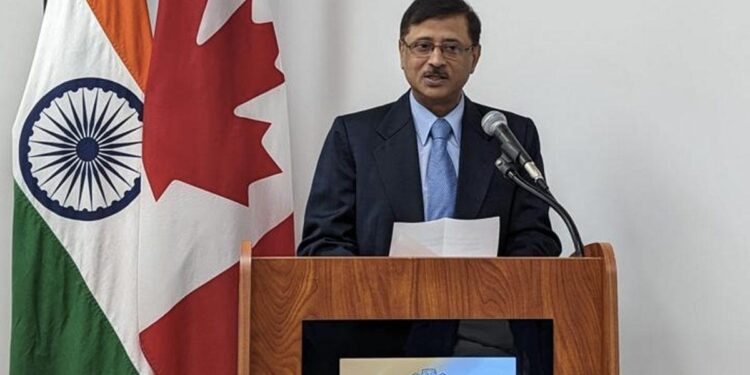India’s Strategic Engagement with the Taliban Amidst South Asian Geopolitical Shifts
In a notable diplomatic move, India’s ambassador to Qatar, Deepak Mittal, recently convened with Taliban representatives in Kabul. This meeting emerges amid escalating tensions between India and Pakistan and signals New Delhi’s intent to recalibrate its foreign policy within a rapidly evolving South Asian context. As Afghanistan undergoes political transformation following the U.S. military withdrawal, India is proactively engaging with the Taliban leadership to safeguard its regional interests and contribute to stability in an area long fraught with rivalry.
Diplomatic Outreach: Navigating Complex Regional Dynamics
The dialogue between Indian officials and the Taliban underscores New Delhi’s pragmatic approach toward Afghanistan’s new power structure. With Pakistan traditionally maintaining close ties to the Taliban, India’s outreach represents a strategic effort not only to protect its security concerns but also to prevent Afghanistan from becoming a sanctuary for extremist groups that threaten regional peace.
Key themes discussed during these high-level talks included:
- Counterterrorism Collaboration: Developing joint frameworks aimed at curbing militant activities that jeopardize border security.
- Economic Cooperation: Exploring avenues for trade expansion and infrastructure projects such as energy corridors linking South Asia.
- Regional Peace Initiatives: Engaging in dialogue focused on fostering stability across volatile zones impacted by shifting alliances.
This engagement reflects India’s broader ambition of cultivating an environment in Afghanistan conducive to peace while counterbalancing adversarial influences from neighboring states.
The Broader Strategic Significance of India-Taliban Interactions
The recent encounter marks a significant pivot in India’s diplomatic posture towards Afghanistan. By opening communication channels with the Taliban—once considered an adversary—India aims to mitigate security threats emanating from militant factions while positioning itself as an indispensable actor in Afghan reconstruction efforts. This nuanced diplomacy serves multiple objectives:
- Terrorism Intelligence Sharing: Gaining actionable insights into extremist networks operating near Indian borders.
- Sustainable Development Projects: Investing in Afghan infrastructure could enhance connectivity and stimulate economic growth benefiting wider South Asia.
- Diplomatic Leverage: Strengthening ties within Afghanistan may provide strategic advantages over Pakistan’s historical influence there.
| Outcome | Potential Impact |
|---|---|
| Enhanced Security Cooperation | Improved intelligence exchange leading to more effective counterterrorism operations across borders. |
| Economic Partnerships Strengthened | Boosted investments facilitating reconstruction efforts and opening new trade routes through Central Asia. |
| Formation of Regional Alliances | Collaborative diplomatic initiatives promoting collective stability among neighboring countries. |
Navigating Fragile Relations Between Afghanistan and Pakistan – A Diplomatic Balancing Act
The intricate relationship between Kabul and Islamabad demands careful diplomacy from all stakeholders involved. To foster lasting peace, policymakers should prioritize strategies that address historical grievances while encouraging cooperation on shared challenges. Effective engagement might include:
- Candid Communication Channels: Establishing forums for transparent dialogue aimed at reducing mistrust between conflicting parties;
- Bilateral Economic Ventures: Promoting mutually beneficial trade agreements that can serve as confidence-building measures;
- < strong > Cultural Diplomacy : Facilitating exchanges among communities across borders helps nurture empathy beyond political divides .
Given ongoing volatility , multilateral collaboration could act as a catalyst for reconciliation . A proposed coalition might encompass :
< th style = " padding : 8 px ;" > Initiative < th style = " padding : 8 px ;" > Description < td style = " padding : 8 px ;" > Conflict Resolution Platforms < td style = " padding : 8 px ;" > Scheduled dialogues addressing disputes constructively . < td style = " padding : 8 px ;" > Joint Security Measures < td style = " padding : 8 px ;" > Coordinated operations targeting terrorism prevention along shared frontiers . < td style = " padding : 8 px ;" > Shared Infrastructure Development < td style= " padding : 08 pixels ; " Shared investment projects enhancing transport networks & energy supply . . . . . . . . . . . . . . . . . . . . . . . . . . . . . . . . . . . . . . . . . $ $ $ $ $ $ $ $ $ $ $ $ $ $ $ $ $ $ $ $ - - - - - - - - - - - - - - - - - - - -A Forward-Looking Perspective on India-Afghanistan Relations Amid Regional Rivalries and Global Realignments
This recent interaction between Indian diplomats and Taliban officials represents more than just bilateral engagement; it signals New Delhi’s adaptive strategy amid shifting geopolitical currents post-U.S withdrawal from Afghanistan.
As tensions persist with Islamabad over longstanding disputes, this development highlights how India is seeking alternative pathways toward securing its national interests.
Observers worldwide are closely watching these evolving dynamics which have implications extending beyond immediate neighbors — potentially influencing broader international relations involving major powers invested in South Asian stability.Ultimately,a sustained commitment toward inclusive dialogue coupled with pragmatic cooperation may pave the way for enhanced security architecture throughout this strategically vital region.*
. . .

